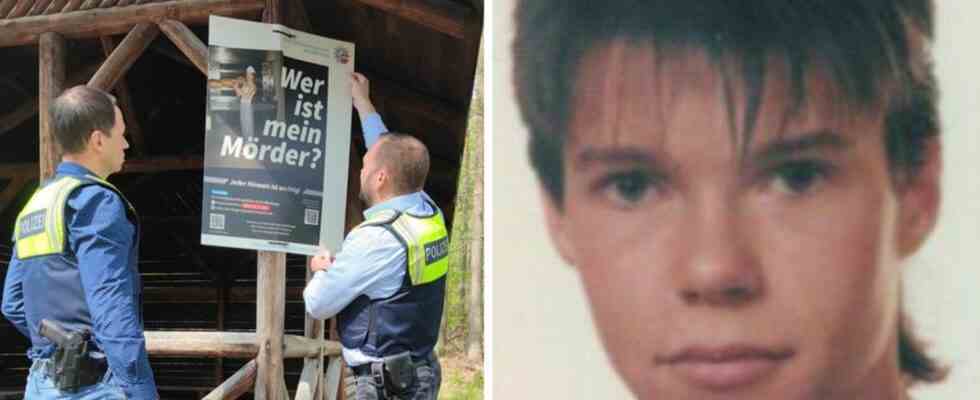Miltenberg
How did Klaus Berninger die? Police questioned hundreds of residents 30 years after the baker’s apprentice was killed
The search for Klaus Berninger should take about ten hours
© Police Lower Franconia / DPA
The baker’s apprentice Klaus Berninger was killed in Lower Franconia in 1990. To date, investigators have not been able to solve the case. Police officers are now ringing hundreds of front doors to put an end to the Berninger family’s uncertainty.
More than 30 years after the violent death of a young person in Wörth am Main in Lower Franconia, police officers want to question local residents on Wednesday. “We are traveling with more than 100 officers from the riot police,” said a police spokesman. “We plan to go door-to-door.” The action is expected to last around ten hours. Anyone who is not at home should be informed about the case with a note in the mailbox and the possibility of who to contact with information. About 4,800 people live in the small town in the Miltenberg district on the Bavarian-Hessian border.
“We cannot promise that we can solve the case, but we are trying everything,” said the police spokesman. The police in Wörth had already reported on the new investigations at a public event last week. Since then, around 20 tips have been received from citizens, which are now being evaluated. With the resident survey, the police are hoping for more clues as to who is responsible for the death of Klaus Berninger. On Thursday, the police want to announce what came out of the action.
Klaus Berninger disappeared on December 20, 1990
The 16-year-old disappeared in late 1990 and was found dead. The police believe he was killed. With new techniques and evaluation methods, she now wants to convict a perpetrator. Information from people who may have observed something on the day the baker’s apprentice disappeared, December 20, 1990, could also be decisive.
Three days later, two walkers found his body in a forest near Wörth in the morning. According to what was known at the time, the young man died as a result of violence with a sharp-edged tool against his neck. According to the police, there is no reliable information about the murder weapon.
Murder does not become statute-barred, and so old cases – so-called cold cases – are rolled up again and again.



